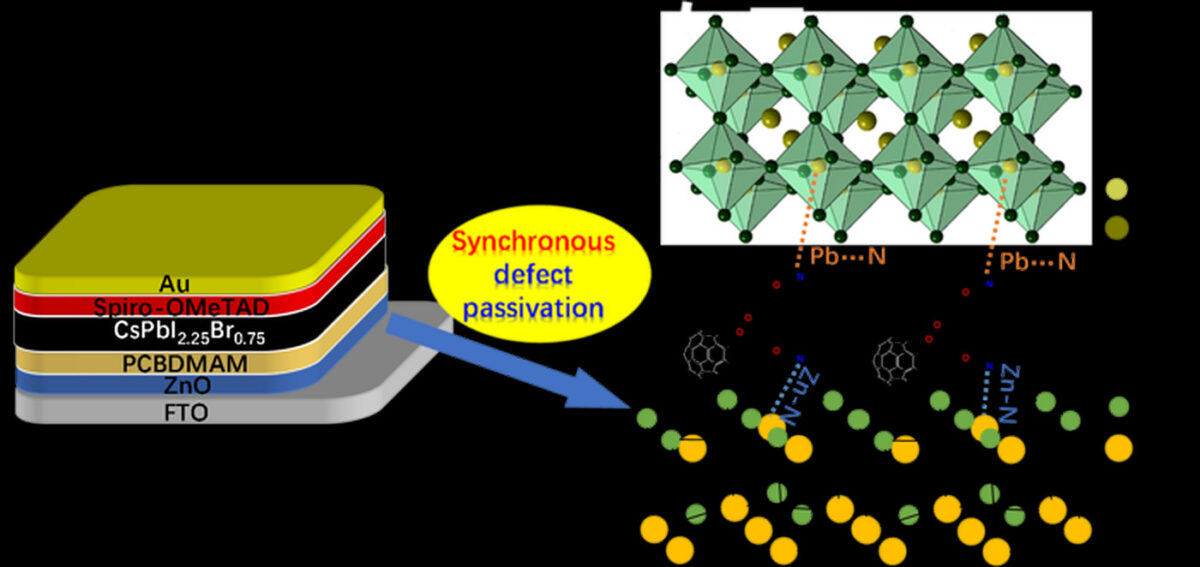A group of material scientists improved the power conversion efficiency (PCE) and thermal stability of all-inorganic perovskite solar cells (PSC) by adding an interlayer called bis-dimethylamino-functionalized fullerene derivative (PCBDMAM). These solar cells have higher efficiency but lower thermal stability compared to those made with organic-inorganic light absorbing materials.
The scientists focused on the interlayer positioned between the zinc oxide (ZnO) electron transport layer (ETL) and all-inorganic CsPbI2.25Br0.75 perovskite layer to enhance electron transport and PCE. The addition of the interlayer increased the PCE to 17.04%, significantly higher than the control device's 14.44% efficiency.
In terms of thermal stability, the PCBDMAM-incorporated PSC device retained around 80% of its initial PCE after 600 hours of heating, while the control device degraded rapidly to about 62% under identical conditions.
Lead investigator Shangfeng Yang stated that they achieved defect passivation of all-inorganic PSCs by using various types of interlayers, such as small molecules, polymers, inorganic compounds, 2D perovskite layers, fullerene, and its derivatives.
The team will continue exploring ways to enhance the functionality and lifespan of solar cells. Their focus includes altering the composition, concentration, and application of solar cell layers to optimize temperature stability and efficiency. The ultimate goal is to make solar energy production more reliable and affordable.
The group published its findings in “Synchronous defect passivation of all-inorganic perovskite solar cells enabled by fullerene interlayer,” which was recently published in Nano Energy Research.
This content is protected by copyright and may not be reused. If you want to cooperate with us and would like to reuse some of our content, please contact: editors@pv-magazine.com.




1 comment
By submitting this form you agree to pv magazine using your data for the purposes of publishing your comment.
Your personal data will only be disclosed or otherwise transmitted to third parties for the purposes of spam filtering or if this is necessary for technical maintenance of the website. Any other transfer to third parties will not take place unless this is justified on the basis of applicable data protection regulations or if pv magazine is legally obliged to do so.
You may revoke this consent at any time with effect for the future, in which case your personal data will be deleted immediately. Otherwise, your data will be deleted if pv magazine has processed your request or the purpose of data storage is fulfilled.
Further information on data privacy can be found in our Data Protection Policy.